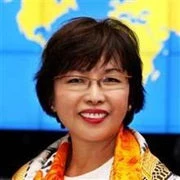As donors, developing country governments, civil society and private sector representatives gather in Copenhagen for the replenishment of the Global Partnership for Education (GPE), I feel both a sense of pride and urgency.
First, the pride: That the global partnership co-founded by the Bank and others as the Education For All Fast Track Initiative almost a decade ago has now matured, to an independent entity with a strong track record of mobilizing additional financing to get millions more children into school in poor countries.
I'm proud that the Bank has continued to support the work of the Global Partnership by being the supervising entity for a large majority of the grants and by investing in a substantial knowledge agenda to help inform education reform in countries. The Bank remains the world's largest external funder of education in developing countries, having provided $26 billion for education since 2000, with almost two-thirds ($16.5 billion) for basic education. I am proud that the Bank has pledged an additional $750 million for basic education over 5 years from IDA, our fund for the poorest countries, to help the countries furthest off-track to meet the Millennium Development Goals for education. Improving both access and quality of education for the most disadvantaged groups - especially girls - is a key pillar for our new Education strategy, Learning for All.
Now for the urgency. Foundational skills are essential to improve the lives of the world’s poor. This is the overall goal of the Millennium Development Goals. While countries have seen notable progress in bringing children to school, it’s too early to celebrate. Donors and governments need to continue their support for basic education, prioritizing this as a vital development investment.
Frankly, we are disappointed that our funding for basic education dropped significantly this past year -- a result both of record spikes in our financing during the previous two years in response to the global financial crisis, but also of weak demand for financing basic education from some countries that should continue investing heavily in this level of education.
The good news is that we can now project a sharp rebound in our financial support to basic education by the end of our current fiscal year to about $1.2 billion, around the levels we saw during the crisis years and well above the historical average ($742 million). In Copenhagen we are reaffirming our commitment to fulfill our pledge by 2015.
As we redouble our efforts to step up support, other donors should also make basic education a higher priority for their assistance. This is true not only for bilateral donors, but also foundations and the private sector, who have as much to gain as anyone from a better educated workforce in developing country markets. Recent changes now enable the GPE fund to accept corporate and other new sources of financing, and this oportunity should be seized.
And all of us who support the GPE also need to help developing countries mobilize new sources of domestic financing for education. This is the only way that our shared goal of free basic education for all can be achieved and sustained.
I hope Copenhagen marks the start of renewed global momentum around making Education for All the urgent priority it deserves.



Join the Conversation